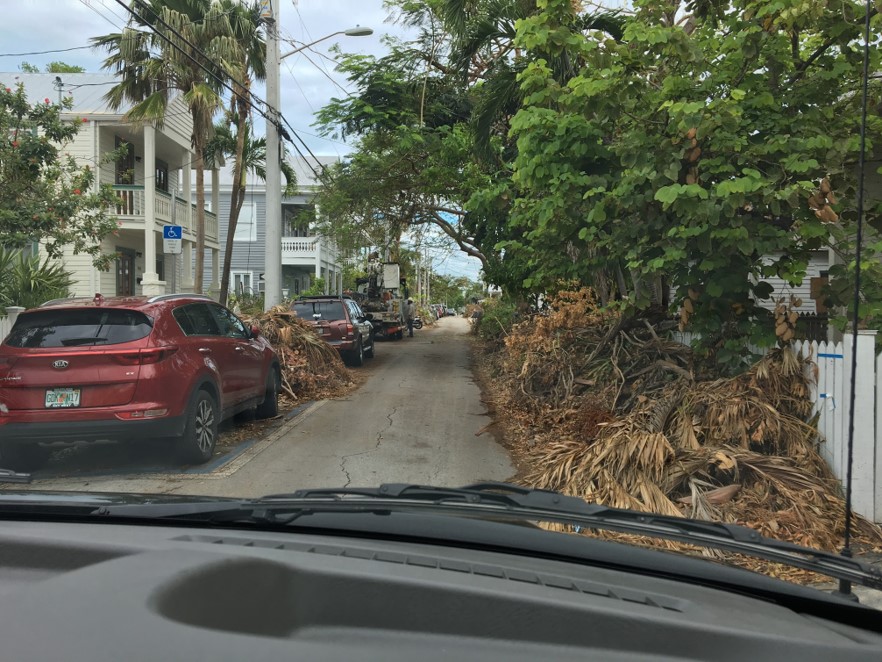As an Emergency Management Specialist, Tina Laboy (Sigma Chapter ‘12) was ready to get involved when Hurricane Irma, the most intense Atlantic hurricane to hit the states since Katrina in 2005, devastated the Florida Keys. She left Maryland with 21 other local Emergency Managers for a two-week deployment where they split into three teams to provide support for three of Florida’s basecamps. “I was deployed as part of an Incident Management Team to ensure that the camp facilities were appropriate and safe for responders staying on the site,” says Laboy.
A basecamp is an area where responders who are helping with recovery efforts can get food, sleep and shower. “If responders are staying at these basecamps,” explains Laboy, “it opens up more hotels for families returning to the area who may be displaced because of damage to their home.” This was Laboy’s first out-of-state deployment through the Emergency Management Assistance Compact, which allows a state in emergency like Florida to request resources or personnel from another state. “We were there to provide a liaison between the State of Florida and the contractors setting up and operating the camp. We performed daily safety inspections on site, communications support, resources support and weather reports for the safety of the camp occupants.” While Laboy started her deployment in Homestead, FL, she didn’t stay there long. The state decided to open up a new camp in Key West and Laboy was asked to join another team to set up the camp. “Over my time there, the Key West basecamp held around 250 National Guard and some FEMA corps members.”
Laboy’s official title at the base camp was Planning Section Chief, a position in the national organizational chart that is standardized by the Incident Command System (ICS). This was Laboy’s first time serving as “Chief,” and like any new leadership role, it took some time for her to get adjusted. “The first couple of days were pretty challenging for me, but now I’m more seasoned at developing Incident Action Plans and have a better understanding than I did before about our ICS forms.”
Not only was this Laboy’s first deployment, but it was the first deployment in recent history that her office supported. “In emergency management, we’re always looking for ways we can do things better or ways to be more prepared. Through this deployment, I was able to share my experience with coworkers to see how we can be better prepared to support other communities going forward,” she explains. One thing that her office learned was that having pre-built deployment packs with supplies such as sleeping bags and battery packs for employees would have been beneficial in a rapid deployment.

When asked about the most challenging part of her deployment, Laboy said it was the fast-paced environment. “My team was working 12+ hour days every day for two full weeks. That can take a toll on you mentally and physically, but you power through it because, at the end of the day, you know that what you’re doing is helping the situation.” As a Brother of Phi Sigma Pi, Laboy knows that every experience is an opportunity to grow. In fact, she described her time at the base camp as a “Tripod experience.” She explains “I learned new things about being on an Incident Management Team that I didn't have experience with before and will be applying those skills throughout my entire career (Scholarship). Although I went on this mission as a part of my job, I sacrificed two weeks of my life to provide service to the Florida Keys community (Leadership). I went down to Florida with some Maryland colleagues I already knew and some that I didn't know and we had plenty of time to get to know each other better (Fellowship). It was an overall good experience that I'm proud to say I was a part of.”

Although it may take some time, Laboy is positive that the community will recover. She doesn’t see herself going back in an official capacity as her team hasn’t received any requests to, but she would love to go back to visit as a tourist and experience the Keys as it once was and will be again.
